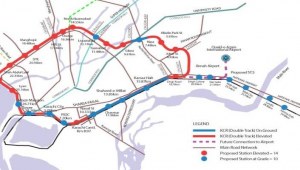Islamabad: The Federal Board of Revenue (FBR) has finalised a comprehensive plan to transform all tax offices into Model Tax Offices (MTOs) within the next four years, as reported on October 7.
Read: FBR offers rewards for reporting retail tax violations
As per details, the transformation process, which will run from October 2024 to January 2028, is expected to close tax collection gaps and improve revenue collection across Pakistan.
Currently, there are four Large Taxpayer Offices (LTOs) in Karachi, Lahore, Islamabad, and Multan. The first phase of the transformation will begin with the conversion of Karachi’s LTO to an MTO, starting on October 20, with completion scheduled by January 2025. The LTO in Lahore will follow in the second phase, set to be converted by July 2025. This transformation plan also includes three Corporate Tax Offices (CTOs) in Karachi, Islamabad, and Lahore, along with one Medium Tax Office (MTO) in Karachi.
By January 2026, in the third phase, the LTOs in Islamabad and Multan, as well as all CTOs and the MTO in Karachi, will complete their transition to MTOs. The final phase will see the conversion of the 17 Regional Tax Offices (RTOs) across the country, located in major cities including Islamabad, Karachi, Lahore, Multan, and Faisalabad, into MTOs by January 2028.
Read: FBR asked to extend deadline for filing income tax returns
An FBR official revealed that the new MTOs will differ significantly from current tax structures in several key areas, such as the appointment of highly qualified and ethical officers and the inclusion of specialised auditors in each unit. The restructured offices will also introduce technological advancements, rigorous performance management, and a taxpayer facilitation zone.
Performance-based incentives will be offered to tax authorities based on a composite evaluation of integrity, measured through peer reviews and forced rankings, and competence, which will be assessed by an anonymous panel of experts. Currently, LTOs contribute 68% of FBR’s revenue—32% from Karachi, 17% from Lahore, and 15% from Islamabad.
The new MTOs will include a dedicated tax facilitation zone, sector-specific expert panels, legal firms, and audit advisors. To address the current shortage of auditors—only 355 are employed out of a required 1,559—the FBR plans to recruit additional staff through three hiring phases.
Read: Non-filers denied property purchases under FBR’s new tax strategy
This transformation is part of the FBR’s broader vision to modernize Pakistan’s tax infrastructure, boost revenue generation, and create a more transparent and efficient tax system.







